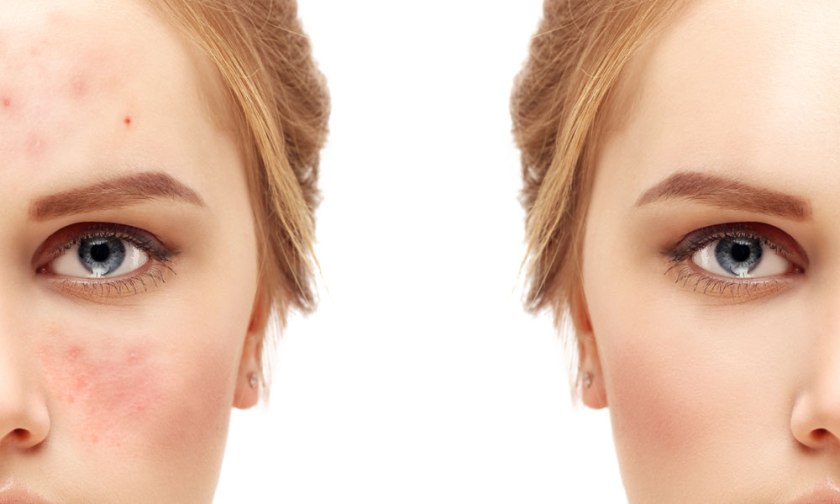Do you have clients with skin conditions such as acne, or body issues like weight gain, persistent fluid retention, fat deposits disproportionate with overall body shape, cellulite, bloating, so stubborn that the products and treatment protocols you prescribe that are normally so successful are just not doing the trick?
Hormone imbalances are on the rise and may be underpinning these stubborn conditions, as well as other distressing symptoms such as gynaecological and digestive disorders.
This is why forming a cross-referral network with allied aesthetics, wellness and medical professionals is becoming increasingly important for both client wellbeing/satisfaction and for your business to survive and thrive.
Sydney naturopath and nutritionist TANIA FLACK tells SPA+CLINIC how she navigates the hormone maze in her practice:
I have been in practice for the last 17 years [Bondi Health and Wellness, Bondi Junction] and have always had a special interest in hormone health and fertility.
In that time I have seen an exponential rise in hormone problems, particularly those associated with compromised hormone metabolism, such as heavy periods, severe PMS, mood fluctuations, fibrocystic breasts, fibroids, polyps, endometriosis, cystic acne, polycystic ovaries and polycystic ovarian syndrome.
Abnormal fluctuations in reproductive hormones tell us that there is imbalance in the body that needs attention.
Ignoring problems associated with the menstrual cycle or masking them with painkillers or the oral contraceptive pill is turning our back on one the best early warning systems we have.
The increase in hormone problems may in part be explained by the ever-increasing amount of endocrine disrupting chemicals we are exposed to through environmental pollution, household chemicals and in the food we eat.
Another significant contributor to the modern epidemic in hormone disruption is the detrimental effect of the modern diet and lifestyle on the function of the liver and bowel, two organs that play an essential role in hormone metabolism.
Many people don’t realise that symptoms of poor elimination, such as bloating, discomfort and irregular or sluggish bowel movements, indicate potential problems with hormone metabolism.
The gut microbiome, which consists of literally trillions of microscopic bacteria that live in our digestive tract, plays an essential role in hormone health.
Our modern diet and lifestyle, including highly refined, high sugar, low fibre diet, stress, caffeine, alcohol and medications all significantly impact the delicate balance of the microbiome.

This can lead to incredibly compromised hormone metabolism, which is a major driving factor behind many hormonal problems.
So fixing the gut and ensuring effective elimination is essential to hormone health.
It is not uncommon for women to have genetic polymorphisms that may impact how well the liver metabolises hormones. These women are often very sensitive to changes in hormones taking or oral contraceptives.
Typically they can experience constipation and bloating prior to their period, and loose bowels during their period.
They are also more likely to have breast tenderness, fluid retention, headaches or migraines and mood fluctuations.
Liver pathways can be easily assessed with functional testing and nutritional and herbal medicine interventions, along with a nutritious diet can make all the difference to how well women feels throughout their cycle and ultimately can be used longer term, if needed, to help protect them against future problems associated with poor hormone metabolism.
Sadly, infertility is also becoming more and more common, to the point that IVF treatment is now considered a normal part of life.
While it’s wonderful that IVF helps so many couples have a family, I think we are ignoring the point that fertility rates are rapidly declining and this can’t be solely explained by the fact that people are waiting longer to start their families.
Our modern world puts a great deal of stress on the reproductive health of both men and women.
Exposure to herbicides, pesticides and other chemicals can interfere with reproductive health as can the typical Australian diet, which is high in fuel and low in vital micronutrients that help support healthy fertility.
Stress, long hours, not enough exercise and poor quality sleep also play a role in declining fertility.
Getting back to basics of a nourishing wholefood diet, regular exercise, effective stress management and good quality sleep is important.
A period of detoxification is often needed to support hormone health and optimise fertility in the preconception period.
Specialised prenatal supplements are important to help to boost nutrient levels and antioxidants help to counteract free radical damage to egg and sperm.
A major part of my practice is helping people achieve and maintain a healthy body composition. Too many Australians are struggling with their weight and are confused about what they should be eating.
Healthy nutrition is obviously an essential part of weight management, but often hormone imbalance contributes to weight problems and this should be assessed before starting any weight loss program.
Insulin resistance, poor thyroid function and leptin resistance can all play a role in stubborn weight problems. Imbalance in the gut microbiome can also be a major contributing factor.
I have found that assessing and correcting hormone and gut function, along with helping people create long-term healthy changes to their diet, achieves the most sustainable weight loss results.
We live in a stressful world and the impact of city living, high pressure careers, long hours, multitasking and not enough personal time can all take their toll on our health and effect how our adrenal glands function.
Stress management and supporting adrenal function is critical for people who are burning the candle at both ends and suffering the consequences of sustained stress.
Chronically elevated cortisol (an important adrenal hormone released during times of physical or emotional stress) can impact reproductive health, thyroid function, the immune system, metabolism and neurotransmitter function.
Exercise, relaxation, maintaining healthy supportive relationships and getting into nature all help us to recalibrate our stress responses and balance our hormones.
The basics of hormone health are a well balanced diet, rich in nutritious wholefoods, regular exercise and a low stress life. However, these are very difficult to achieve in a modern world.
Luckily for those effected by hormone imbalance, help is to hand and natural medicine has a lot to offer in terms if assessing hormone health and gently correcting the balance through specific dietary interventions, nutritional and herbal medicine interventions.
HORMONE HEALTH BASICS
- Ensure adequate dietary fibre
- Minimum four cups of vegetables per day
- Stay hydrated – 2 litres per day is optimal
- Limit alcohol and caffeine
- Avoid sugar and refined foods
- Exercise at least 4 times a week and move every day
- Make stress management a priority
- Aim for eight hours sleep a night
- Avoid chemicals and pesticides
- Choose personal care products wisely
- Avoid plastics in the home
- Go organic if you can




